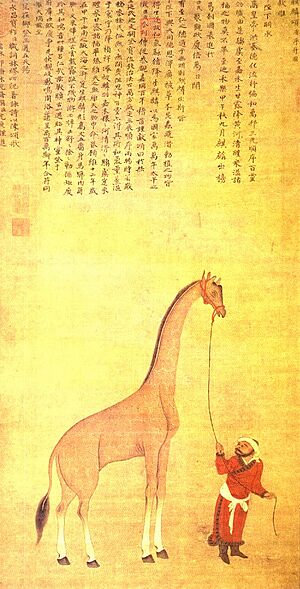Neocolonialism facts for kids
Neocolonialism is a way for powerful countries to control less powerful ones. It's not about taking over land directly. Instead, it uses economic or political influence. Think of it as a modern form of control.
This term describes how rich countries might use their money or culture to guide poorer nations. They might promote their own products, ideas, or even language. This can make the weaker country depend on the stronger one.
Contents
What is Neocolonialism?
Neocolonialism happens when a strong country influences a weaker one. This influence can be about money, trade, or even culture. The powerful country might promote its own way of life. This can make the weaker country depend on the stronger one.
How is it Different from Colonialism?
Long ago, Colonialism meant one country directly ruled another. They would send their own people to govern. They would also take control of the land and its resources. This happened from the late 1400s to the 1900s.
Neocolonialism is different. The weaker country is officially independent. It has its own government and laws. But a powerful country still has a lot of say. This control comes through things like loans, trade deals, or cultural trends.
Who Talked About Neocolonialism?
The word 'neocolonialism' was first used by Kwame Nkrumah. He was the first president of Ghana. Ghana became independent from colonial rule. Nkrumah wrote a book about it in 1965. He said neocolonialism was a way for rich countries to solve their own problems.
Another famous person who spoke against it was Che Guevara. Many people who disagree with how developed countries interact with developing nations use this term. They believe it creates unfair relationships.
Images for kids
-
Protest against U.S. involvement in the military intervention in Yemen, New York City, 2017
See also
 In Spanish: Neocolonialismo para niños
In Spanish: Neocolonialismo para niños
 | Jewel Prestage |
 | Ella Baker |
 | Fannie Lou Hamer |





